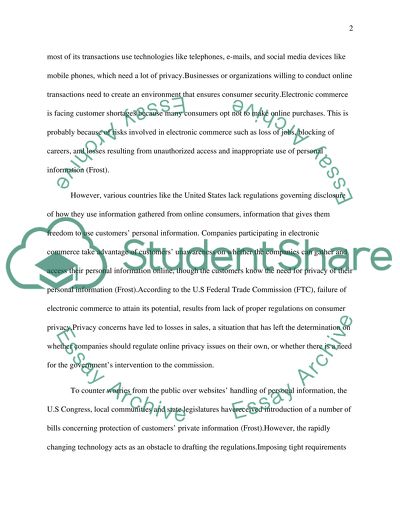Cite this document
(“Privacy as a consumer issue in electronic commerce Research Paper”, n.d.)
Privacy as a consumer issue in electronic commerce Research Paper. Retrieved from https://studentshare.org/law/1490463-privacy-as-a-consumer-issue-in-electronic-commerce
Privacy as a consumer issue in electronic commerce Research Paper. Retrieved from https://studentshare.org/law/1490463-privacy-as-a-consumer-issue-in-electronic-commerce
(Privacy As a Consumer Issue in Electronic Commerce Research Paper)
Privacy As a Consumer Issue in Electronic Commerce Research Paper. https://studentshare.org/law/1490463-privacy-as-a-consumer-issue-in-electronic-commerce.
Privacy As a Consumer Issue in Electronic Commerce Research Paper. https://studentshare.org/law/1490463-privacy-as-a-consumer-issue-in-electronic-commerce.
“Privacy As a Consumer Issue in Electronic Commerce Research Paper”, n.d. https://studentshare.org/law/1490463-privacy-as-a-consumer-issue-in-electronic-commerce.


